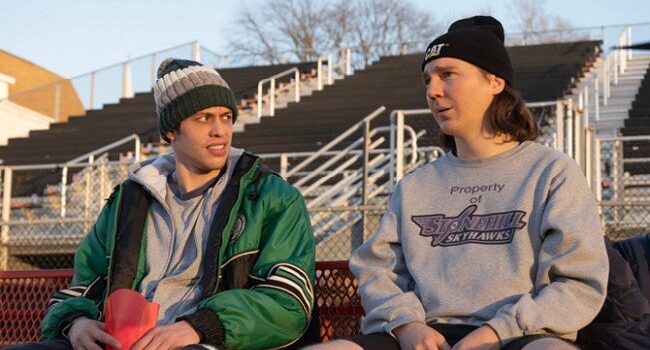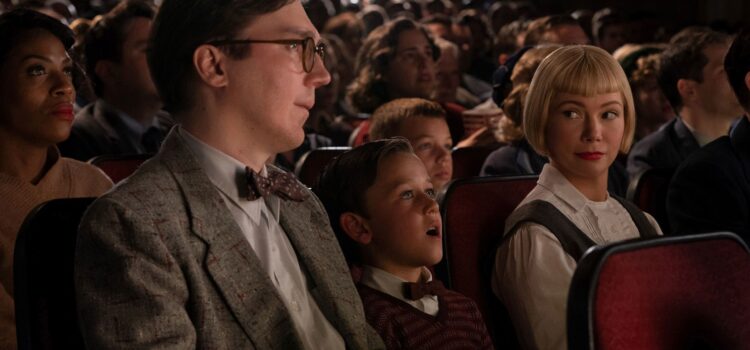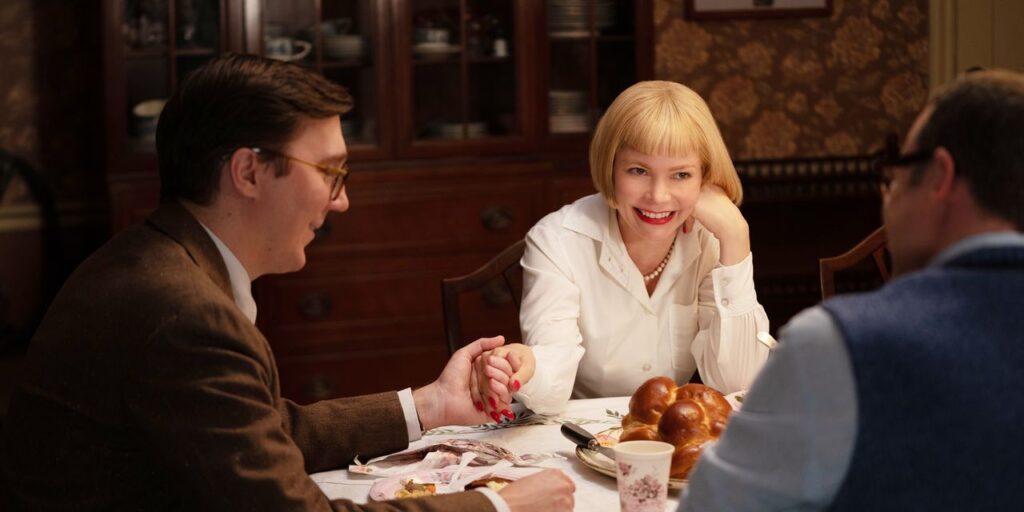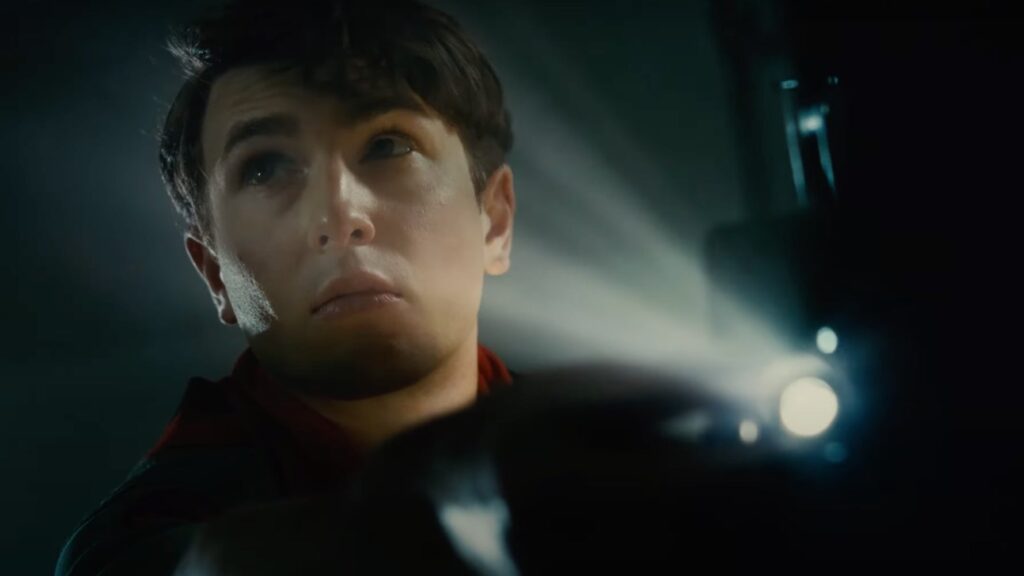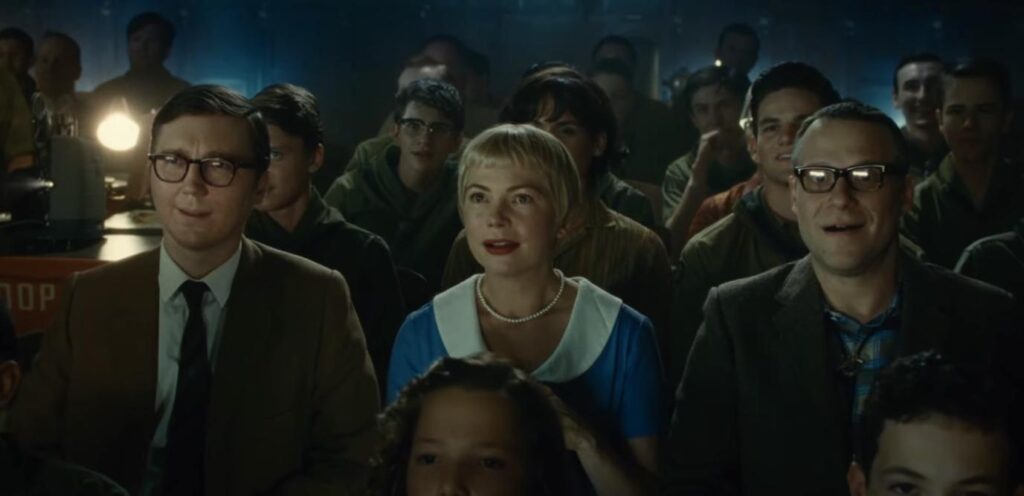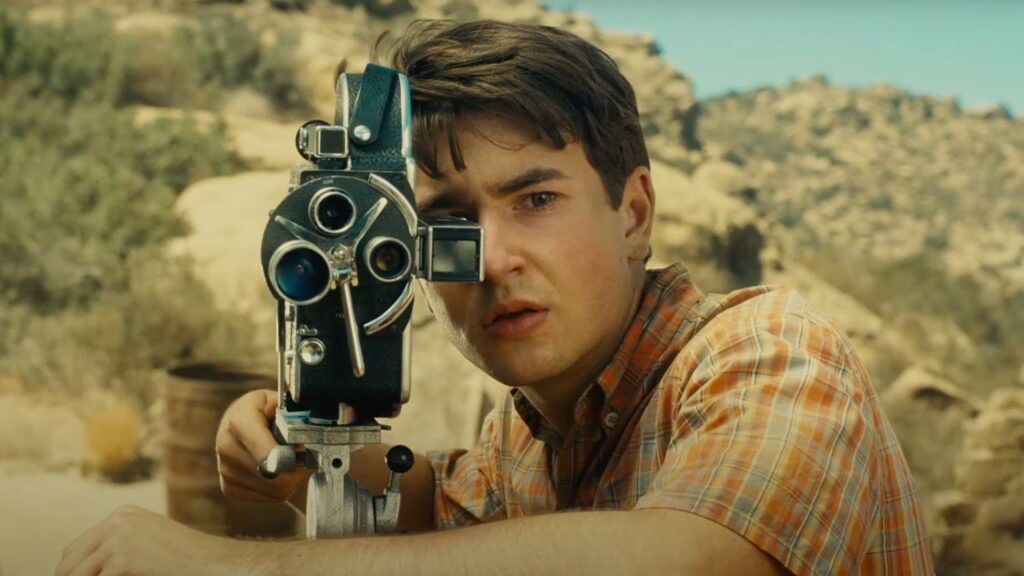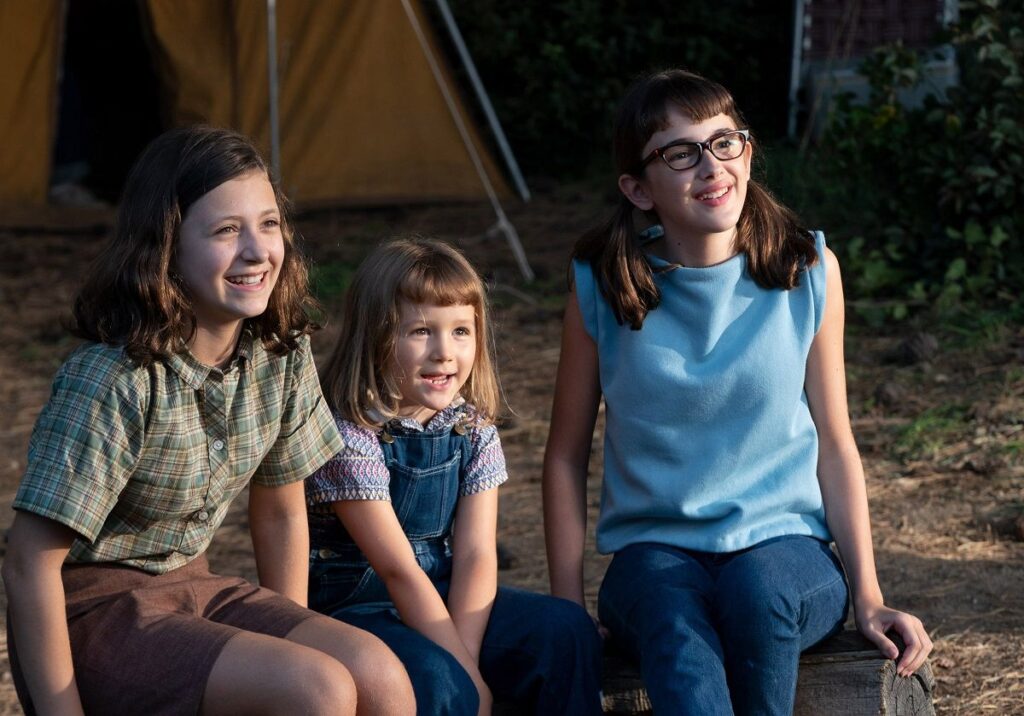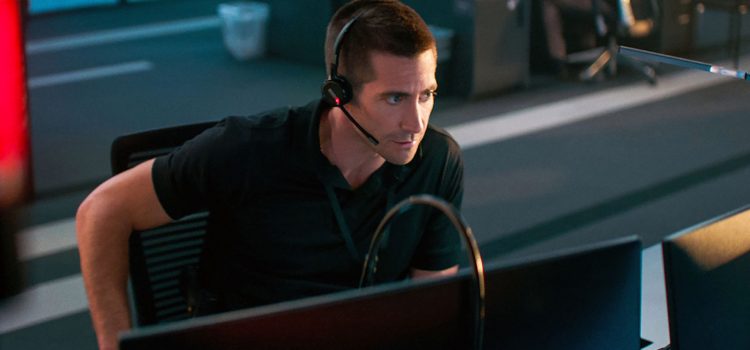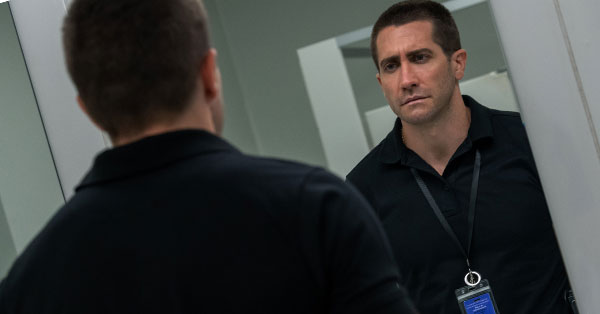By Alex McPherson
Less smart and invigorating than it thinks it is, but containing strong performances and comedic zing, director Craig Gillespie’s “Dumb Money” eschews the nuance of its recent-history narrative in favor of amiable watchability.
Gillespie’s film, based on “The Antisocial Network” by Ben Mezrich, dramatizes the tumultuous happenings of the Gamestop “short squeeze” of January 2021. A red headband-and- cat-shirt-wearing Redditor named Keith Gill (Paul Dano), a.k.a. DeepF*******Value on Reddit and Roaring Kitty on YouTube and Twitter, rallies an Internet army to fight back against The Rich and make it big.
After determining that the company is undervalued, Keith goes all in on GameStop — convincing his large swathe of followers on the subreddit r/wallstreetbets to buy GameStop stock and eventually make the price skyrocket to $500 a share.
The uber-wealthy hedge fund managers betting on GameStop’s failure — Gabe Plotkin (Seth Rogen), Steve Cohen (Vincent D’Onofrio, sometimes accompanied by a CGI pig), and Ken Griffin (Nick Offerman) — lose billions by underestimating the demographic they disparagingly refer to as “dumb money,” while still having some nefarious tricks up their sleeves that result in a Congressional investigation.
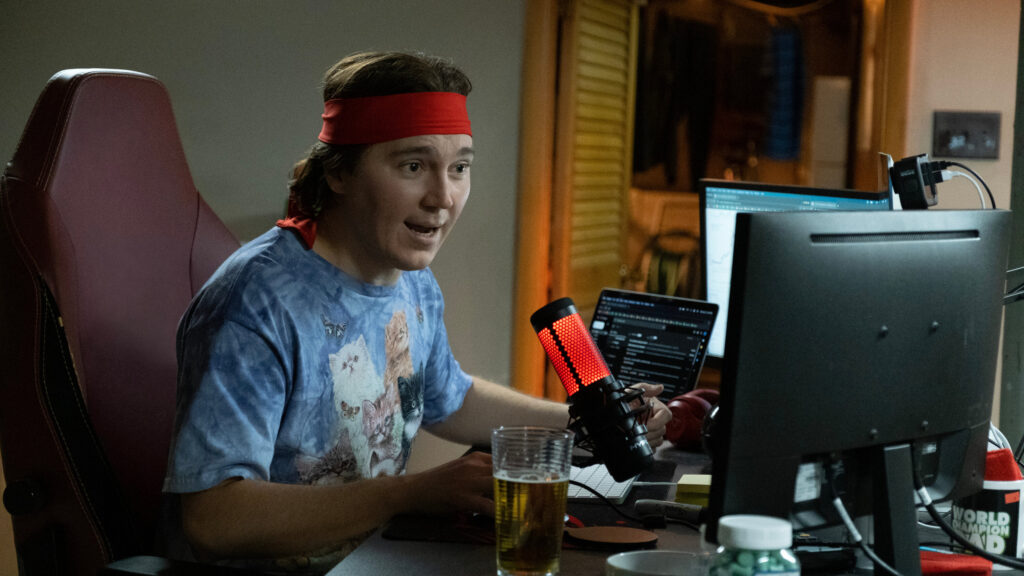
Beginning at the peak of the squeeze, where Rogen’s Plotkin runs to make a phone call in sheer panic, the film jumps back and forth between five groups of characters showcasing various perspectives on the situation, each introduced with text indicating their net worth.
There’s Gill, whose genius (or luck) and expertise in online parlance helped start a movement — facing pressure to sell his skyrocketing stock from his loving wife, Caroline (Shailene Woodley, mining some pathos out of a fairly simplistic role), his amusingly deadbeat brother Kevin (Pete Davidson, in top form), and his somewhat clueless parents, Steve (Clancy Brown) and Elaine (Kate Burton) — while never quite knowing when to call it quits.
There’s the down-on-his-luck Gamestop employee Marcos Barcia (Anthony Ramos), who’s passionate about the company but contending with a condescending boss (Dane DeHaan). There’s the indebted University of Texas undergraduates Riri (Myha’la Herrold) and Harmony (Talia Ryder), who follow Roaring Kitty religiously and feel compelled to hold their shares as long as he does.
We also follow Jenny (America Ferrera), a stressed, underpaid nurse raising two toddlers and listening intently to Keith’s instructions. Last, and certainly least, there’s the hedge fund managers, caught with their pants down and scrambling to recover their losses, with Vlad Tenev (an underused but smarmily effective Sebastian Stan), the head of day-trading company Robinhood, playing a skeevy role in the whole kerfuffle.
With so many mini-narratives taking place under one umbrella, “Dumb Money” lacks the focus and thematic depth necessary to make any individual subplot hit with the force it could have. There’s nothing inherently wrong with a breezy interpretation of a true story, but it feels like Gillespie is only scratching the surface of the subject matter here — combined with filmmaking that lacks energy or pizazz, coasting on the appeal of its performers and snappy dialogue.
The whole cast delivers, doing what they can with characters of varying degrees of dimensionality. Dano is as reliably committed as always — weaving in and out of Keith’s various personas with ease; his confidence and quirkiness before his viewers reverting to awkwardness and defensiveness in front of his family. We never doubt the passion and devotion Keith has to his mission.
Davidson, once again definitely not playing against type, delivers the film’s most successful comedic lines. Lauren Schiker Blum and Rebecca Angelo’s screenplay mines dry comedy out of his laissez-faire approach to Kevin’s DoorDash job and his dumbfoundedness at Keith’s ever increasing ambition (and risk-taking) over not selling his stock.
Ramos, Herrold, and Ryder are fine, bringing energy to their characters, even though we don’t learn all that much about them besides their participation in the short squeeze, and Ferrera sells Jenny’s anxiousness and desperation, putting her livelihood on the line and leaving her social life behind.
Strength of the cast aside, though, one can’t help but feel like “Dumb Money” didn’t have to be an ensemble piece to begin with. What’s sacrificed by Gillespie’s approach is a deeper, more involving watch, where viewers fully understand the characters’ motivations rather than solely being told facts and being expected to buy into them.

Viewers jump back and forth between the characters at various stages of the short squeeze, never spending enough time with them to fully appreciate their para-social bond with the man they’re risking their livelihoods over, relying on the heavy-handed screenplay to tell us how to feel in largely black-and-white clarity.
Marcus, Riri, Harmony, and Jenny never meet Keith in-person — distanced yet hanging by his every word — and Gillespie misses an opportunity to explore the allure, compulsion, and righteousness they each feel by following Keith’s lead, besides bluntly stating that they feel certain ways before viewers cut away to a different character.
The hedge fund managers, brought to life with entertainingly snooty performances, are fun to sneer at, but one-note. It doesn’t help that Gillespie’s direction lacks energy, failing to capture the dynamism of directors tackling similar subjects like Adam McKay did with “The Big Short.”
Indeed, no amount of memes flashing on screen, Cardi B music drops, or amusing lines of dialogue can ever fully make up for the fact that “Dumb Money” is simplistic and devoid of true insight into the rigged game of stocks or wealth inequality. At least this David vs. Goliath tale remains an agreeable watch despite all this.
The screenplay’s preference for comedy — not dwelling on the stress or darker aspects of the story too much before reverting to laughs — undersells the stakes to a certain extent, but shines in moments separated from the Internet, especially involving Keith’s family and characters navigating mask-use during COVID.
Additionally, it’s commendable that Gillespie makes all the stock-chatter mostly understandable and digestible. This approach, though — streamlining real-world events into accessible entertainment — applies to the film’s emotional element as well, rendering the attempts at both first-pumping and sobering moments all the more manufactured and lightweight, especially when the arguably more engaging epilogue is conveyed through on-screen text.
At the end of the day, however, watching smug grifters get their just desserts remains satisfying to watch unfold, no matter how shallow Gillespie and company frame it. “Dumb Money” is too slight to linger long in the mind, but as a crowd-pleasing underdog story, it rises enough to the occasion.

“Dumb Money” is a 2023 comedy directed by Craig Gillespie and stars Paul Dano, Seth Rogan, Nick Offerman, Pete Davidson, Shailene Woodley, America Ferrara, Vincent D’Onofrio, Sebastian Stan, and Anthony Ramos. It is rated R for pervasive language, sexual material, and drug use, and the run time is 1 hour, 45 minutes. It opens in theaters Sept. 22. Alex’s Grade: B-
Note: this review was written during the 2023 WGA and SAG-AFTRA strikes. Without the labor of the writers and actors currently on strike, the movie being covered here wouldn’t exist.
Alex McPherson is an unabashed pop culture nerd and a member of the St. Louis Film Critics Association.

